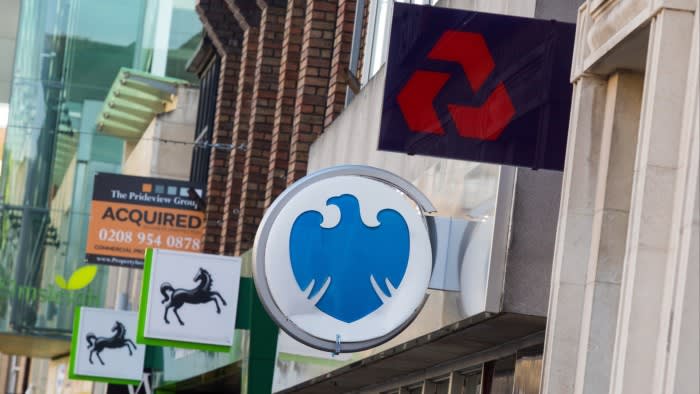Unlock the Editor’s Digest for free
Roula Khalaf, Editor of the FT, selects her favourite stories in this weekly newsletter.
The UK financial watchdog has stepped up pressure on banks to offer more attractive interest rates on deposits, despite recent increases giving consumers £4bn extra on their savings over the past year.
The Financial Conduct Authority warned that it would “take appropriate action” — which could range from warnings through to fines — if banks continued to flout its rules ensuring consumers receive “fair value” on savings products.
Coming a day before the Bank of England meets to decide whether to cut interest rates for a second time this year, the FCA’s warning showed it was continuing to turn the screw on banks to improve returns for savers even after rates started to fall.
Lorraine Johnston, a partner at law firm Ashurst’s financial regulation practice, said: “On cash savings, the FCA is intently focused on something that was an easy win for them when rates were rising, but may prove more challenging when rates come down again.”
Addressing concerns that banks will be quicker to pass on rate cuts to savers than they were to reflect rate increases, the FCA said it would “continue to closely monitor firms’ future savings rate changes”.
“We will expect a clear explanation should we identify that a firm has changed its savings rates significantly more quickly and fully in response to interest rate reductions, compared to previous interest rate increases,” it said.
The announcement came a year after the FCA outlined a 14-point plan to push for banks to improve how they passed on recent interest rate increases to consumers.
It said average rates on easy access savings accounts had risen from 1.66 per cent to 2.11 per cent in the year to June — outstripping the quarter percentage point increase in the BoE’s base rate to 5.25 per cent in that period.

The increase “suggests greater competition in the savings market is having an effect,” the FCA said, adding: “We estimate that consumers will receive an additional £4bn per annum in interest payments.”
Consumers moved an extra £29bn into accounts with a fixed-term or a notice period that often pay a higher rate in return for committing to save for a certain period in the year to June, increasing the total to £274bn.
Despite these changes, the FCA still identified problems. “Many firms have found the assessment of value challenging and the largest firms generally continue to pay below the market average for standard easy access products,” it said.
It did not single out banks failing to comply, but said it had worked with the nine largest UK deposit-takers: Lloyds Banking Group, HSBC, NatWest, Santander, Barclays, Nationwide, TSB, Virgin Money and the Co-operative Bank.
Tim Hogg, director at consumer group Fairer Finance, said banks were prompting more consumers to shift their savings to higher rates. But he added that some were still “sending vague and ineffective emails to their savings customers, which don’t cut through the noise”.
The FCA raised concerns about “bonus rates” that attract customers but lapse after a year, urging providers to do more to consider if these are “fair value”. It said others were not doing enough to address customers who earn low interest on their savings, or had failed to identify products delivering “poor outcomes” to customers.
Sam Richardson at consumer group Which?, said: “The regulator should not hesitate to step in and take tough action against firms continuing to short-change customers.”
The rules stem from the watchdog’s landmark “consumer duty” reform last year, which requires financial companies to prove they are acting in their customers’ best interests.


